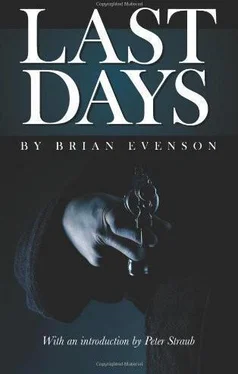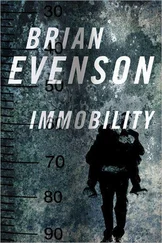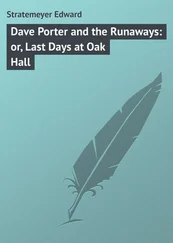"He indeed was an eight," said Borchert. "But now he's a nine. Five."
"It wasn't a question," said Kline. "It was a statement."
"It was fishing for information," said Borchert. "Thus a question. 'Isn't he an eight?' you might as well have said."
"Where does Ramse live?"
"Excuse me?"
"Where does Ramse live?"
Borchert paused, hesitated. "I wish I could see your face, Mr. Kline. I'd like to know exactly what you hope to gain from this question. Don't suppose you care to tell me?"
"His address," said Kline.
"Perhaps we should suspend this," said Borchert. "Just gently call a stop to it and allow you to kill me in whatever manner you please."
"If you'd like," said Kline.
"I don't like giving out information whose use strikes me as uncertain."
"Perhaps I just want to see an old friend."
"Not likely, Mr. Kline. But then again, what does it matter to me once I'm dead?"
"That's the spirit," said Kline.
"And there's always the matter of choosing my own death."
"Within reason," said Kline.
"Yes," said Borchert. "Exactness and order in all things. I'm aware of the terms," he said, and told him how to find Ramse's house. "Three more, Mr. Kline," he said, once he was done.
Kline nodded, but of course Borchert couldn't see. The gun had grown sweaty in his hand. He stuck it into his jacket pocket, rubbed his hand against his pants. The hand came back sticky with blood.
"How many of you do I have to kill before you'll leave me alone?" asked Kline.
"How many?" said Borchert, and smiled. "Don't you realize you'll have to kill all of us, Mr. Kline?" he said. "Every last one."
"Two more questions, Mr. Kline," said Borchert. "Do you feel like you've gained something? What do you do with all this knowledge of yours? Do you feel more complete?"
Kline didn't say anything.
"Well, then," said Borchert. "Your move, Mr. Kline."
"What sort of plans do the Pauls have for me?"
"Ah, yes," said Borchert. "The return of the repressed. Isn't it obvious, Mr. Kline?"
"No," said Kline.
Borchert pursed his lips. "Try harder, Mr. Kline," he said. "Consider Paul. A young man who likes things in their place, a strong believer in ritual and in some of the traditions of the old church-the so-called relics of his so-called saints for instance." He smiled. "We have our spies too, Mr. Kline. We know the Pauls inside and out. Think, Mr. Kline, what would a man like that want with you?"
"I don't know," said Kline.
"You do know, Mr. Kline. Think. He thinks of you as their messiah. But messiahs' lives are always messy. What can one do with a messiah so as to allow Him to enter unsullied into the realm of myth?"
"I don't know."
"Martyr Him, of course. Crucify Him."
Kline felt his limbs grow suddenly heavy, the missing limb most of all. Borchert was making a repeated barking sound, like he was choking to death, his breathing mask fogging inside. It took Kline some time to realize he was laughing.
"You're lying," said Kline. "It was you who wanted to crucify me."
Borchert stopped barking. "Of course we wanted to crucify you," he said, "but as one of the two thieves. It's different for them. Think it through, Mr. Kline."
Kline stayed motionless, watching Borchert's damaged face twitch.
"Why?" he finally asked.
"Why?" asked Borchert, and his whole body seemed to flinch. "Because Paul believes in you, Mr. Kline. Paul thinks you're the one. You came like a thief in the night. You came bearing not an olive branch but a sword. You left a swath of fire and destruction in your path. You seem to him as if you are impossible to slay by mortal means. In his eyes, you are the Son of Man, which is to say the Son of God."
"I'm not," said Kline.
"And what does one do with the Son of Man?" asked Borchert. "One crucifies Him, of course. One does him the favor of helping Him step out of this mortal round, thus making the Son of Man the Son of God. There's also of course the matter of you being the only person among the Pauls more powerful than he. At this point, Mr. Kline, you're more useful to him dead than alive."
"What should I do?"
"Alas, Mr. Kline, you've run out of questions. You'll have to figure that one out on your own. Or rather you have one more question that awaits an answer: How does Mr. Borchert choose to die? "
"How does Mr. Borchert choose to die?" asked Kline.
"In the back," said Borchert, "near the hotplate, you'll find a cleaver. I believe you're already rather familiar with its mode of operation. I want you to deliver one final amputation. I want you to separate my head from my body."
"You what?"
"You promised," said Borchert. "A dying man's final request."
Kline didn't say anything.
"It's not that I believe in you exactly," said Borchert. "But I wouldn't say I don't believe in you either. Let's just say I'm hedging my bets."
And then it came again, that barking laugh.
There's no reason to do it , part of him kept saying as he went to fetch the cleaver. Just shoot him in the head and be done with him. But another part of him was saying, Why not? What did it matter? He had come here with the intention of killing Borchert: why not kill him in this way?
And a third part of himself, the part that terrified him the most, was saying, What if Paul is right? What if I am God?
There will always be three of me from now on , he thought, or a third part of him thought, or a fourth part of him thought, and he shook his head.
He was back at the bed, holding the cleaver now, staring down at Borchert.
"Ready?" he asked.
"Go ahead," said Borchert, and Kline felt his hand raise the cleaver and then bring it down hard.
A neck, it turned out, was not nearly so easy as an elbow. Either that or the cleaver was duller than it had been, or Kline flinched when he delivered the blow, or it was not a clean blow to begin with. Or it was simply the fact that Borchert's neck, when compressed, was slightly wider than the cleaver's blade. It took a second blow, Borchert's mouth contorted already into a rictus, and then a third, but even once the spine was severed there was still a thick band of intact flesh, and finally he had to post his stump against Borchert's chin and push the head away from the neck so that the band of flesh grew taut and could be cut. Borchert's eyelids fluttered, fell still. There was blood everywhere.
He went to the door and tried to open it only to realize he was still holding the cleaver. He felt he had lived all this already, and dropped the cleaver. His guns too he took out, all three of them, and let them fall to the floor.
He started out into the hallway, found it deserted, and then had second thoughts and went back in. Gathering the cleaver, he slipped it into his belt. Borchert's head too he gathered, holding it by its sole clump of hair. And then he started out again.
How do you know the moment when you cease to be human? Is it the moment when you decide to carry a head before you by its hair, extended before you like a lantern, as if you are Diogenes in search of one just man? Or is it the moment where reality, previously a smooth surface one slides one's way along, begins to come in waves, for a moment altogether too much and then utterly absent? Or is it the moment when you begin opening doors, showing each man behind each door the head of his spiritual leader before killing him with the cleaver tucked into your belt? Or is it the moment when all these dead begin to talk to you in a dull, rumbling murmur? Or is it the moment when these same voices suddenly fade away and stop talking altogether, leaving you utterly alone?
I am remarkably calm , thought Kline, moving from room to room. I am doing remarkably well , he thought, considering.
Читать дальше












